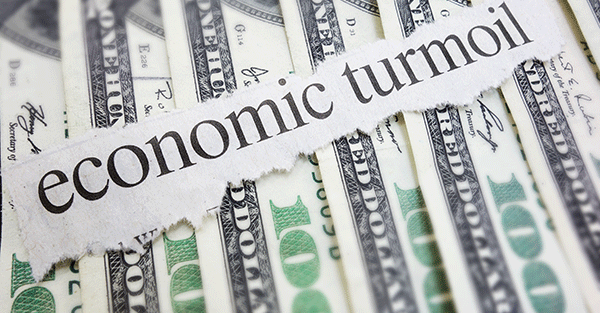[Editor’s Note: This letter was written by Tim Price, London-based wealth manager and frequent Sovereign Man contributor.]
On August 6, 1979, Paul Volcker as the new Chairman of the Federal Reserve was determined to eliminate the terribly high inflation that had taken hold of the system. And he succeeded.
The Fed’s primary interest rate stood at 11% when Volcker entered office. By June 1981 he had hiked them all the way to 20%.
Corporate America was not impressed. Indebted farmers blockaded his building.
But the pain was relatively short-lived. And as Volcker’s victory over inflation became more apparent, markets applauded. As bond prices started to rise, stock prices joined them.
Both credit and equity markets began a multi-decade bull run.
The trend in interest rates for years has been in the other direction; rates in the US are now effectively zero, though Janet Yellen is widely expected to announce a modest tightening next month.
Over here in Europe, zero has not marked the lower bound for rates. The European Central Bank’s deposit rate stands at negative 0.2%. And they’re widely expected to cut the deposit rate even further.
These policies have consequences. One of those consequences is that government bond yields throughout Europe have gone negative.
Government bond yields with durations up to two years are now negative in Switzerland. As well as Germany. Finland. The Netherlands. Austria. Belgium. Denmark. France. Ireland. Sweden. Italy. Spain.
Regardless of how heavily and unsustainably indebted those governments are, bond investors in all of those countries are still buying bonds even though they are now guaranteed to lose money.
But if this weren’t odd enough, the weirdness has spread from bonds to cash.
From January, depositors in Alternative Bank Schweiz in Switzerland will earn negative 0.125% on bank deposits. Depositors with over 100,000 Swiss francs will earn negative 0.75%.
If you wanted to trigger a bank run, this is certainly how you might go about it.
First, drive interest rates down to zero. Then cut rates even more. At the same time, start talking about banning cash altogether. [Editor’s note: More on this later in the week.]
And if you’re in the euro zone, make sure you squander seven years doing precisely nothing to restructure your banking system after its near-death experience of 2008.
What should the rational investor do in an environment of ongoing financial repression?
To know the answer, we need to know whether central banks will be successful in their increasingly quixotic efforts.
We think the ultimate outcome will be an inflationary mess on a scale perhaps unprecedented in financial history, but not, perhaps, before a deflationary crisis happens first.
Either way, western market government bonds no longer offer any margin of safety, only the prospect of guaranteed loss. They have once again become certificates of confiscation.
For us, the logical solution is to focus only on the highest quality businesses trading at the lowest possible multiples – which invalidates most western markets, notably those of the US, from consideration.
And notwithstanding the price action of the last four years, we continue to see merit in precious metals.
Think of gold, for example, not as a commodity (given that gold is rarely, if ever, consumed), but as a special type of bond.
In the words of Charlie Morris, formerly of HSBC Global Asset Management, think of gold as an irredeemable bond that pays no interest, but has no credit risk, where the issuer is God or the universe itself.








